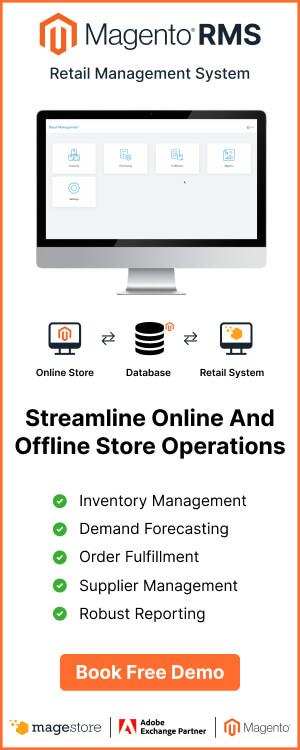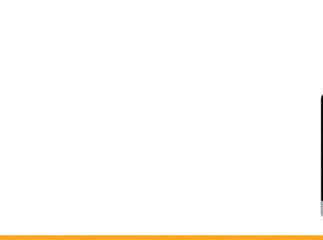Supplier relationship management (SRM) software is used to establish and nurture the relationships with vendors by simplifying the communication between a company and their suppliers across all stages from sourcing to payment. You’ll use SRM software to manage suppliers throughout the supply chain, access their performance, and manage risks.
In this article, we’ll discover the concept of supplier relationship management system, what features you should expect, and the top SRM solutions. The table below sums up our shortlisted candidates based on their outstanding features.
| Best SRM for | Key features | |
| Magestore | Magento merchants who want a full solution to manage retail stores | – Robust supplier management and inventory management, procurement, and order fulfillment
– All data are synced across business functions in real time to provide 360-degree visibility on your operations to enhance strategies |
| SAP Ariba | Growing and large corporations to handle eProcurement and supply chain management | Full functions to manage supply chain, unify supplier management, inventory, contract, payment, etc. |
| Procureware | Businesses who want to focus on procurement and vendor management | Focus on eProcurement features, including sourcing, bidding, evaluating, and contract management |
| Oracle Supply Chain Management | Manufacturers and industrial companies that need to control the entire supply chain, from acquiring materials to fulfilling orders | Tool for supply chain planning, supplier management, vendor sourcing, manufacturing, and logistics |
| Ivaula | Companies who want to focus on spend management and control the source-to-pay process | Simplify the end-to-end procurement procedure, from sourcing to invoicing, and analysis of cost management |
| AdaptOne | Business owners who need a basic vendor management software | Include all features to manage suppliers, diversity, compliance, certifications, and risks |
| Pipefy | Organizations seeking a solution for business process automation. | Vendor management, procurement, purchasing, and contract management to facilitate communication and save time on manual work |
- What is SRM software?
- Must-have features of an SRM system
- 7 top-listed supplier relationship management solutions
- Magestore
- SAP Ariba
- ProcureWare
- Oracle
- Ivalua
- AdaptOne
- Pipefy
What is SRM software?

SRM system is the tool to store and centralize all supplier data, source new vendors, create inquiries, and identify related risks with suppliers. If your business relies on suppliers to provide direct and indirect goods or services, SRM tool is a crucial application. It monitors all procurement activities for your company, including gathering and evaluating all bid proposals, managing contracts and purchase orders, and generating invoices.
The system helps you automate processes, synchronize all data, and control suppliers in one place for smooth communication. The best supplier relationship management software allows you to get instant access to necessary information to improve budget spending, tackle supplier problems, foster the relationships with vendors and negotiate better terms with them.
There’re 2 main purposes of vendor relationship management software. Firstly, it aims to evaluate if the supplier performance meets up to your standard, and secondly, determines aspects for improvement while cooperating with suppliers.
Must-have features of an SRM system

When choosing supplier management software, here’re the features you should look for:
1. Supplier data management
- Store all supplier documents like invoices, transaction receipts, contracts, supplier certifications, suppliers’ compliance, etc
- Register new vendors and suppliers, and allow contractors to register themselves via a supplier portal
- Create complete supplier profiles by automatically linking all supplier records, such as their background data, their experience, and the projects they’ve worked with you
- Send notifications when there’s an update in supplier data
- Store and track all supplier data, including current capabilities, ongoing contracts, pricing, and remarks on terms and conditions
2. Supplier risk management
- Monitor, alert, and mitigate supplier risks in real time, including operation and contractual risks
- Display a detailed dashboard with an overview of risks involved, driving factors per risk, the risk possibilities of each supplier
- Latest vendor compliance regulatory check
- Carry out supplier audits and recognize potential issues
3. Procurement management
- Quickly generate purchase requisitions and orders
- Assign suppliers to provide a specific service or location depending on your criteria and data insights
- Track supplier execution status on their current purchase orders
- Automate the three-way matching process to prevent inconsistencies, including purchase orders, order receipts, and suppliers’ invoices
- Provide a communication tool to discuss orders and projects with your team and the suppliers
- Generate invoices accurately
- Schedule procurement when your inventory reaches a threshold
4. Bidding and supplier selection
- Provide the pre-qualification tools to assess vendors for their financial health, track record of similar projects, stability to provide the goods and services, compliance to your company’s regulations, etc.
- Automate the workflow to approve the sourcing activities
Support collaboration among different teams to nominate and select suppliers - Establish requirements for supplier compliance, such as quality standards, experience, sustainability, delivery terms, etc
- Offer templates to create tenders and auctions
- Compare bidders based on quality, pricing, and terms
5. Supplier performance management
- View a comprehensive dashboard on supplier activities
- Show past data, orders, and performance analysis of vendors
- Segment suppliers based on performance and engagement level
- Send automatic alerts on disrupting supplier performance
6. Supplier contract management
- Create contract using templates
- Track the status of each contract
- Store all previous and current contracts in one database
- Automate contract renewal
7. Cost management
- Set up cost limits per supplier or per department
- Provide real-time spend analysis
8. Supplier portal
- Edit and update supplier catalog
- Provide a supplier forum with Q/A sections and attached files
- Create supplier surveys to get feedback
7 top-listed supplier relationship management solutions
1. Magestore supplier management

Magestore is a Magento-native supplier management system that has robust in-built functionalities for supplier relationship and contract management. Magestore is ideal for store owners who want an all-in-one system to control their retail operations.
With Magestore, all your internal process data and external data about suppliers and customers are connected to give you the big picture of your company. SRM tool is a part of Magestore software and thus completely aligned with your inventory, procurement strategies, demand forecasting, sales, and order fulfillment. This unifies all business functions in one Magento single source of truth, and also integrated with your ERP to help you make data-driven replenishment decisions and foster relationships with vendors.
Moreover, you can use the software in the front-end to reduce the workload on your Magento database which then helps your eCommerce store run faster.
Highlight features:
Vendor and purchasing management:
- Manage suppliers and purchasing in one platform, store and instantly sync all information of vendors and contracts, purchase orders, and link to product SKUs and inventory management
- Keep track of inventory level to know which items and how much should be re-ordered to prevent stockouts or overstocks
- Analyze past sales performance and lead time to establish product low-stock threshold and get alerts when products are running low
- Generate purchase orders automatically with a few clicks
- Forecast demand to eliminate guesswork, optimize production timelines and shipments
- Control unit of measurements (UoM) to convert stock units to purchase order units
Inventory management:
- Determine the optimal inventory levels and working capital to reduce holding costs
- Sync inventory data with your website, point of sale, and back office in real time
- Arrange items into standardized bins and pallets to easily find the location
- Stock counting to ensure you have the right products in the right quantity and inform procurement actions
- Track all inventory movement from placing a PO, receiving the stock at the warehouse, transferring to stores and making sale
Comprehensive reports:
- Customize reports to your specific needs and preferences
- Sync and analyze all data in Magento for efficiency and avoid mismatched data
- Gain insights into purchasing, suppliers, and customers to improve your SRM and your CRM
- Other features: warehouse management and omnichannel order fulfillment
Price
Contact the Magestore team to get a custom quote based on your needs and requirements. Magestore offers a 90-day money-back guarantee with no extra cost to add users and devices when you want to scale up in the future.
2. SAP Ariba

SAP Ariba is an eProcurement and supply chain management system that streamlines source-to-pay operational processes. It offers an all-in-one solution for growing and large companies, including supplier management, sourcing, procurement, contract lifecycle, and spend management.
SAP Ariba allows you to control the entire interface journey with suppliers, from the initial sourcing stages to bidding, and negotiating, to contract execution, performance analysis, and risk management. You can incorporate all supplier data and transactions into a single place, optimize your workflows to cut costs, make better procurement decisions, automate invoice capture, and get the visibility to track supplier performance.
Highlight features:
Sourcing and contracts: The supplier relationship management software (SRM) helps you reduce costs and control risks. Here’re what you can do:
- Gather and classify all your purchases
- View your total spending and identify sources for savings
- Standardize the entire source-to-contract workflow
- Maximize materials cost savings
- Improve speed and collaboration among teams
- Find better suppliers to reduce the risk of relying on a few vendors
Procurement: You can connect the spend categories and boost supplier collaboration, such as:
- Handle direct, indirect, and services spend
- Improve procurement with guided buying
- Achieve greater efficiency and cost control
- Centralize data, analyze, and get insights
Supplier management: The vendor management system helps you manage performance, lifecycle, performance, and risks in one place. You can obtain the right products with the right quantity, at the right time, from the right suppliers.
- Prioritize spending to the key suppliers
- Integrate supplier management features with procurement
- Unify supplier records for management
- Manage risks at scale across your supply chain
Invoice and payment management: Automate your payables workflows to take advantage of the working capital management:
- Digitalize the payment process with invoice capture and approval
- Enforce control over cash and payable accounts
- Manage early-payment discounts
- Other features: external workforce and services, travel and expenses.
Price
The pricing of SAP Ariba subscription varies depending on location and usage requirements. You can contact SAP directly for a custom quotation. However, the starting price is $50.00 per month.
3. ProcureWare

ProcureWare is cloud-based software of eBid Systems that offers a suite of tools for supplier relationship management. It supports the vendor’s self-registration process and provides you with a searchable supplier database. Some notable features of ProcureWare are drag-and-drop functionality, message delivery tracking, log notification, receipt acknowledgment, and e-distribution of tender documents.
The supplier management solution allows you to create competitive bidding for pre-qualified suppliers with templates for various RFx types. After you receive proposals, ProcureWare helps you facilitate the bid evaluation of the sourcing team to analyze and score bidders’ responses. In addition, ProcureWare’s contract management functions let you control the ongoing supplier engagements. It stores all contract documents, saves modifications and tracks contract milestones.
Highlight features:
Supplier management: A centralized system that offers supplier pre-qualification, self-registration, and bid notifications. You can gain visibility of all supplier data to manage risks and make better decisions.
- Vendor self-registration
- Customized supplier categories
- Supplier approval
- Diversity management
- Certification management
Sourcing: ProcureWare helps you control the entire sourcing lifecycle, including vendor selection, pre-qualification, online tendering, bid evaluation, and contract award.
- Bid document distribution
- Pre-made pricing forms for multiple items
- Supplier notification
- Pre-bid question and response
- Bidder list management
- FRx templates
- Configurable bid questions
- Bid analysis and team bid scoring
Contract management: You can keep track of all contracts and ensure compliance with the terms and conditions. The SRM software sends you alerts for contract renewals, warranty expiration, and any key contract milestones to give you a proactive risk management approach.
- Automated award-to-contract processes
- Contract document repository
- Create and send modifications and change orders
Price
The price starts at $12,500.00 per year. To get a customized solution for your business, contact eBid Systems for a quote.
4. Oracle Supply Chain Management
Oracle Supply Chain Management (SCM) is a solution combining supplier management features with supply chain and manufacturing functionalities. It’s suitable for industrial companies that need complete supply chain visibility, from product development to order fulfillment. It offers tools for planning and controlling inventory, vendor sourcing, production, and delivery.
Oracle SCM helps you proactively devise strategies to grow revenue and reduce costs, and monitors the execution to ensure you meet your goals. You can use visual analytics and view the deviations in your plans and reality, examine the alternatives, and revise your plan in real time.
Highlight features:
- Supply chain planning: You can plan supply, demand, manufacturing, manage sales and operation, and order fulfillment across your supply chain. It enables different teams to collaborate smoothly to increase productivity, minimize disruptions, and save costs.
- Inventory management: Control stock flow across your locations and your global supply chains with in-built features for materials management, cost management, and financial and supply chain orchestration.
- Procurement: Streamline source-to-pay workflow with an intuitive interface for analytics and collaboration. It simplifies supplier management, including selecting vendors, imposing compliant spending, and improving profitability.
- Analytics: Enrich your analytic insights to identify and resolve supply chain problems faster.
– Detect bottlenecks and cost-saving opportunities
– Find the correlation between supply chain operations with business outcome
– Monitor consistent order execution to enhance customer satisfaction
– Understand inventory status to better fill customer demand
Other features:
- Logistics management that lets you control warehouses, product transportation, and global trade.
- Product lifecycle management accelerates the speed to launch products, improves quality, and reduces costs by unifying your supply chain with product master data.
- Manufacturing and maintenance features such as scheduling the projects, controlling quality and costs, procurement of spare parts, etc.
- Order management: Keep track of the pricing, sales channels, and fulfillment sources to improve the order execution process
Price
You can contact Oracle for the pricing schedule suitable for your requirements.
5. Ivalua

Ivalua is a spend management platform that offers a complete solution for businesses to effectively manage all suppliers and spending. It simplifies the source-to-pay process and digitalizes all procurement workflow, including sourcing, contract execution, analytics and strategy, and invoicing. With Ivalua, you can ensure accurate data quality and transparent information. It has robust features to manage vendors, such as supplier master data management, request management, sourcing, and contract management.
Highlight features:
Supplier risk and performance management: You can control all supplier data, identify risks, and measure performance in one place:
- 360-degree view of supplier information and activities to gain insights
- Transparent data to lower risks and enhance performance
- Easy collaboration between your team and the suppliers
Sourcing: The SRM software automates the sourcing processes and expedites strategies
- Collect and categorize your spending: direct, indirect, services, capex
- Manage projects effectively, and track the status, timeline, quality, etc.
- Provide analysis of bidders to choose the optimal suppliers
eProcurement: Simplify the purchasing experience for your procurement team
- Upgrade the eCommerce experience for the team
- Connect the buyer and seller seamlessly with a supplier portal
- Customize your digital workflows for procurement of all spending types
Invoicing: Digitalize the accounts payable and compliance
- Centralize all invoices from PDF email to EDI
- Automate invoice checking with an intuitive 4-way matching and one-click approvals
Payments: Facilitate payments for global suppliers
- Streamline processes for domestic and cross-border vendor payments
- Minimize supplier inquiries and fraud
- Update payment status in real time
Price
Ivalua offers a custom quote for each business. You can contact their sales team for a consultation.
6. AdaptOne

AdaptOne is a vendor management solution that can holistically connect and manage your procurement processes. It provides you with accurate real-time visibility to take advantage of data insights, establish compliance and reduce risks. It has a user-friendly design, with scalability and security to assist companies with effective supplier management.
AdaptOne allows you to control suppliers and manage diversity and certifications. It also has a supplier portal for vendors to actively manage and update their information.
Highlight features:
- Consolidated company data governance allows all relevant stakeholders and departments to access trusted real-time information. Thus, your team can work smarter and have the insights to validate, oversee, and measure suppliers.
- Control compliance and mitigate risks by determining qualified suppliers, gathering certifications, tracking expirations, and automatically sending email alerts and reminders.
- Flexible supplier onboarding feature creates a robust, configurable vendor-facing platform to onboard your suppliers. You can classify supplier types and tailor the onboarding process to fit your internal requirements.
- Reach and engage with diverse suppliers easily. In this way, you can add more competition to the game and drive down costs. Furthermore, it creates opportunities for new networks or innovations that may bring you future value and grow your market.
- Manage data and configure reports in real time to gain insights based on various dimensions such as direct or indirect spend, contracts, and business units.
- Set up and control your spending goals: You can monitor timesheets and overtime, track and process funds, and facilitate your payment procedures.
Price
Contact AdaptOne to get a custom proposal.
7. Pipefy

Pipefy is a solution to automate business processes. It has in-built features for supplier management, procurement, purchasing, and contract management. Using Pipefy, you can get a full overview of supplier information to improve communications, speed up approvals, and monitor department spending with tailored dashboards.
In addition, you can integrate Pipefy with your existing systems to create a smooth and unified operation for better stack extensibility. Thus, Pipefy enhances cooperation between vendors and your key approvers in the connected processes, all securely and from a single hub.
Highlight features:
- Communicate with stakeholders to create a single flow for status updates via a customer portal
- Collect and share information easily to ensure everyone is aligned and avoid errors. You can share your online forms and company portal with all necessary information.
- Streamline the procurement execution along all steps: engage with suppliers, customers and colleagues, receive approvals, and incorporate with ERPs or other purchasing tools
- Get accurate data from spending, PO cycle time, to supplier performance to further optimize and improve the numbers with customizable dashboards.
Price
- Starter: Free. This is recommended for startups, small teams, and freelancers.
- Business: $19/user/month. This is suitable for mid-sized companies that need to centralize and scale business workflows.
- Enterprise: $32/user/month. The package is best for organizations that require enterprise-level control, security, and support to handle complicated business processes.
- Unlimited. This is for companies that need unlimited power to enhance their enterprise processes.
FAQ
What is the difference between SCM and SRM?
SCM stands for supply chain management. It means managing the goods flows from sourcing raw materials to delivery of the completed merchandise to customers. On the other hand, SRM, or supplier relationship management, refers to the management of how each supplier contributes to your business, and how you can improve the relationships with them.
What is an example of SRM system?
Some supplier relationship management examples are Magestore, SAP, Oracle, Procureware, Ivalua, AdaptOne, and Pipefy.
What is CRM vs SRM?
Customer relationship management (CRM) is the method or system to deal with customer interactions and customer data throughout their CX journey. The purpose of CRM is to nurture relationships with customers, gain an understanding of customers’ needs and pain points so that you can improve your marketing and sales strategies.
In contrast, SRM is all about managing relationships with suppliers to strengthen collaboration and build a win–win partnership in the long run. SRM helps you establish a more efficient supply chain to save costs and improve the quality of products and services.














